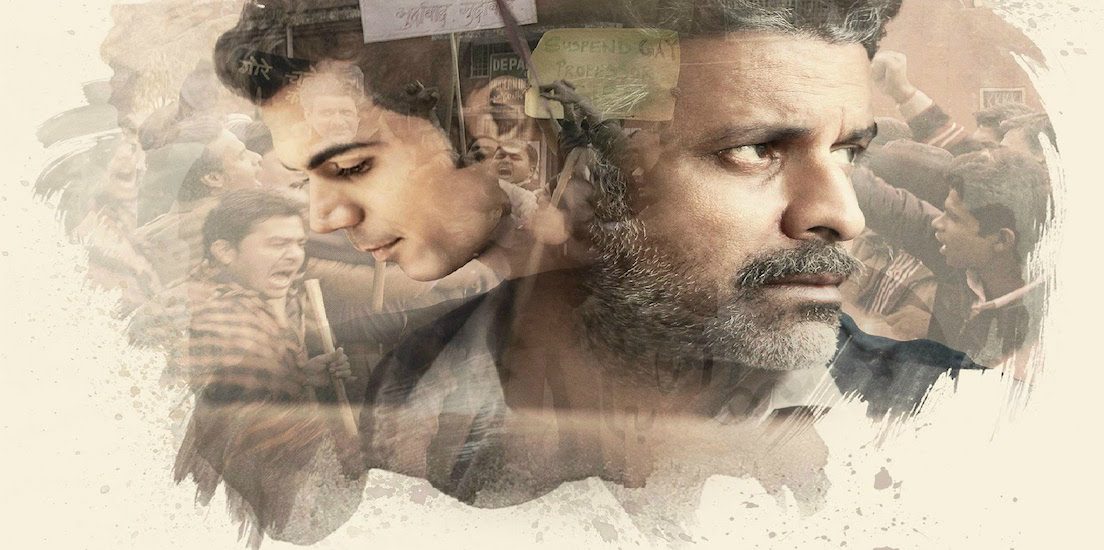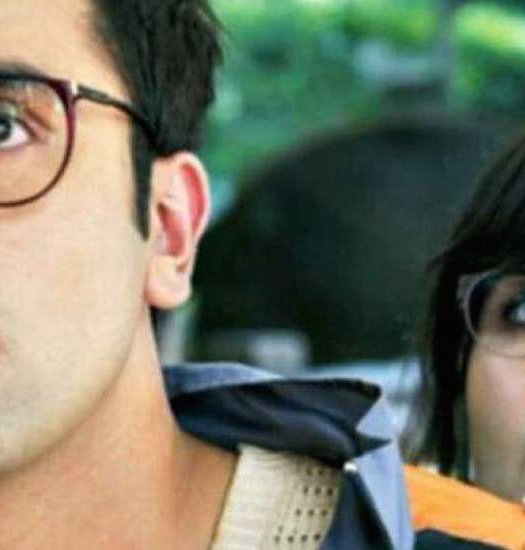Capturing the essence of Aligarh with Hansal Mehta & Apurva Asrani
When a National award-winning editor cum screenwriter and National-award winning director come together, one can be assured of cinema that is beyond exceptional. The power-packed duo of Apurva Asrani and Hansal Mehta who have worked together on acclaimed movies like Chhal and Shahid, team up yet again for another incredible film – Aligarh. Aligarh that has already received global recognition will soon hit theaters and and the duo is excited, to say the least. We catch up with them to know more about their experience of making this biopic, the impact the story has had on them and many other things.
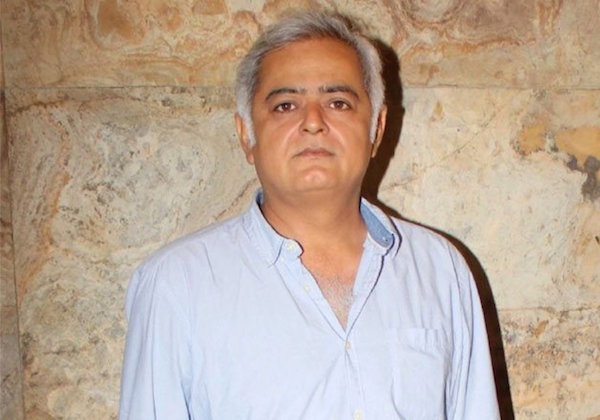
Hansal Mehta, Director
What was the most challenging part about penning down Aligarh?
Apurva: I think the most challenging thing was being responsible towards the true life character of Professor Siras, on whom the script is based and also to the larger issues. It tackles Section 377 and Article 21, which is about our right to privacy. We had to be responsible towards these things while also dealing with our own emotions. Here you see the kind of injustice and tragedy that has happened to a very lovable person. During this film, we got to know Professor Siras better and it just broke my heart.
READ: I COMPLETELY BELIEVED IN THE SUBJECT OF ALIGARH – MANOJ BAJPAYEE
What did the research for the film entail?
Apurva: The story idea and the main research came from Ishani Banerjee and she got us access to various people who knew Professor Siras. She also collected articles written about him, which was the starting point. But the screenplay is based on three very important articles by a bright, young journalist of that time called Deepu Sebastian Edmond. He broke the story, followed it up and got to know Professor Siras better. Therefore, we have created the bedrock of our story based on these three very important articles on Professor Siras’ life.
Hansal: The Fact-finding Committee’s report, which was commissioned to investigate the circumstances surrounding Professor Siras’ death and the court case, since he was under suspension from the university, were a very crucial part of the story as well.
So did you’ll meet Deepu Sebastian while you were writing the film?
Apurva: Yes, while writing, I did speak to Deepu several times because he had become a very integral part of our film. He even saw the film at the MAMI film festival. He was sitting next to me and I was very nervous because like I said, we are so responsible for this material and being true to it. And he started crying while watching the film. We got to know Deepu really closely while writing this.
Did you’ll get a chance to meet the Professor before his death in 2010?
Apurva: No, we did not get the chance, but the day he expired, I was called on a leading news channel to debate against Section 377. At that time, they had amended Section 377 in the Delhi High Court and consenting adults were excluded from it. The debate was on whether just changing the law was enough or whether society also had to change alongside. Coincidentally, while I was preparing to go on the debate, we got the news that Professor Siras had died. That day I ended up doing my research on him and finding out what happened in his life. And five years later Hansal came to me with the story idea and said that we should do this film.
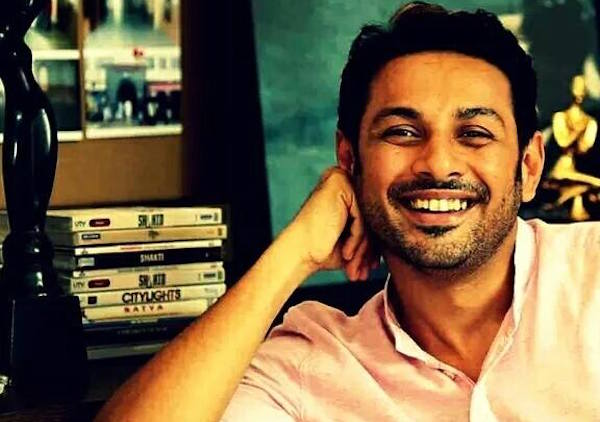
Apurva Asrani, Writer (Image Source – Apurva Asrani’s Facebook)
While making a biopic what are the aspects that one needs to take into consideration?
Hansal: In a biopic, you want to show the spirit and the entire essence of the journey. When you learn about the character, you find something in the character’s journey that moves you, that inspires you and you want to capture it. If I am going to show you 17 years of someone’s life, I am not going to show you 17 years of film, I want to show you a two-hour film and that film should capture all the important aspects; aspects that move you and inspire you and in some way compel you to think about that person’s life.
Was Manoj Bajpayee your first option for the role of Professor Siras?
Hansal: He was the first person that we approached and he was actually Mukesh Chhabra’s (Casting Director) choice. Initially, we did not think of Manoj because we though that he was was young for the role, but he transformed our thinking.
READ: 5 MUST DO’S TO CRACK AN ACTING AUDITION – MUKESH CHHABRA
And how did you’ll cast Rajkummar Rao as the journalist in the movie?
Hansal: Rajkummar is my liquid oxygen; this is our third film together. Whenever a film is being written, if there is something that I think that Rajkummar can do, I approach him. Even for this film, I felt that this was a part that he could do. I approached him and he did not say no. He is one of the finest actors of his generation; in fact, there is no actor with his capabilities and spontaneity. And I am privileged that he did this film.
While writing, how did you visualize the film? Did you wish to show everything or highlight only the key points?
Apurva: A person’s life is so long and you are going to bring him on the screen for less than two-hours, which makes it a tough choice – what does one keep in and keep out without losing the essence of the character. But in this particular story, it was different from most other biographical films that I have watched because we are not talking about his entire life story. We start from the time when this incident hits the headline and the final article is published, so within this framework, which is three months, we need to understand this person’s life. The focus of the writing was the essence of his life’s journey within these three months.
READ: CITYLIGHTS EVOKES COMPASSION
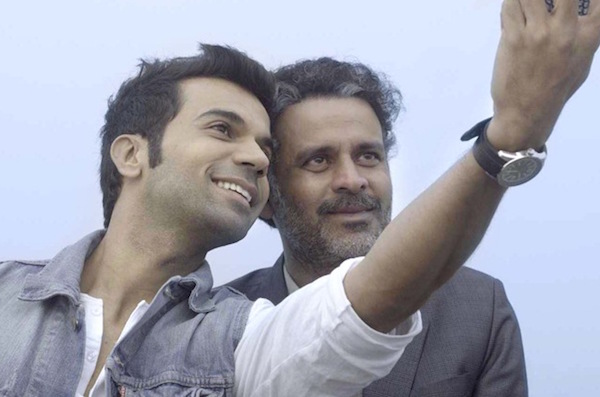
Still from Aligarh
The movie deals with the sensitive issue of homosexuality, how do you want the audience to perceive the film?
Hansal: You need to see a film as a film. A film is something that engages you with the characters, with the screenplay, with cinematic merits of the film, the sound, the image; so a film is meant to engage. What is different is that it is a meaningful engagement. The engagement will hopefully leave you with something that will compel you to think about your prejudice, your own life, and the way you might discriminate somebody different from you.
READ: BOLLYWOOD’S TRYST WITH HOMOSEXUALITY
Aligarh has traveled to various film festivals in India and internationally. What kind of audience reactions have you’ll received?
Hansal: It was very positive, we had packed houses, standing ovations and a lot of the people were moved by the film. It was very heartening. The reason we went to festivals was to see how the audience will react to a new kind of story. They reacted very positively and encouraged us.
While making the movie did you think that the Censor Board would give it an A certificate?
Hansal: The rules and guidelines for certification are such that the Censor Board is unable to take a definite stand and so they gave us an adult certificate But that is a separate story altogether. We had an issue with the certification of the trailer. Trailers, in order to be shown, need to have a U or U/A certificate and that couldn’t happen. At least, they could have suggested a cut if they felt there was something unsuitable in the trailer. That was the issue that we had, but we are over that now.
Has working on Aligarh changed you’ll as individuals?
Hansal: It has made me realize that loneliness needs attention, you have to recognize when somebody is lonely. And, that loneliness can be filled with love; it has filled my heart with more love.
Apurva: I debuted as a writer with this film and it just gave me a voice. I have been a film editor for the last 20 years and my work was unsung then. Now, my voice is directly out there, you can hear my dialogues and you can see my writing, which is a big change. But most importantly, more than my own personal thing, I got to know about a character who I had known only through the news headlines. We judge people just basis the headlines and base our entire understanding of the character on that one incident. But when I went deeper and met the people who knew him, the people who cared about him, that understanding changed. I found his poetry and his writings. I found that there was so much depth, so much art and literature, so much niceness, and gentleness in that person. Now, I have stopped looking at people and judging them so quickly.
-Dhruvanka Medhekar. Transcribed by Aarti Sukhija

